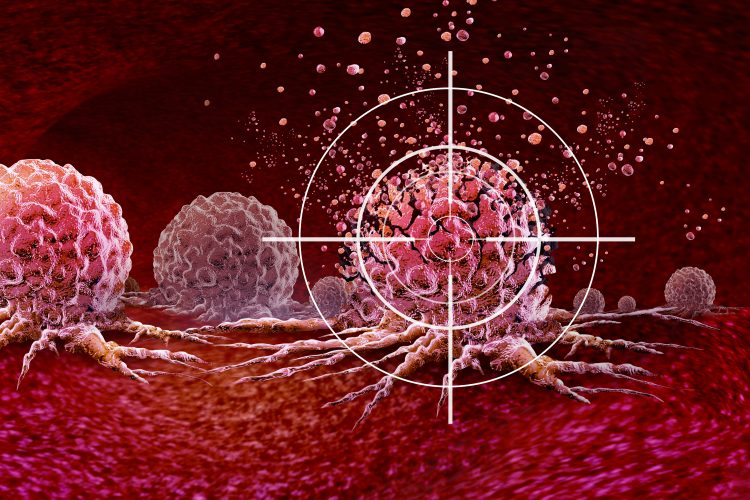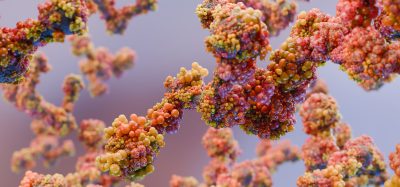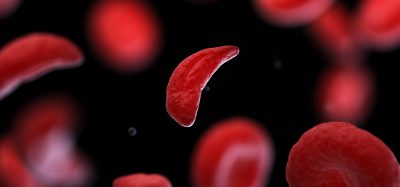Scientists develop immunotherapy to disarm fat-fuelled tumours
Posted: 8 May 2025 | Drug Target Review | No comments yet
A new study reveals how tumours hijack fat metabolism to suppress immune responses – and how a novel antibody, PLT012, may reverse this effect, offering new hope for treating immunotherapy-resistant cancers.


A recent study- published in Cancer Discovery – by Ludwig Cancer Research has identified a metabolic checkpoint that tumours exploit to evade immune attack- one that relies on fat metabolism within the tumour microenvironment. Led by Ping-Chih Ho and Yi-Ru Yu of Ludwig Lausanne, in collaboration with Sheue-Fen Tzeng and Chin-Hsien Tsai of Taipei Medical University, the team developed a novel antibody, PLT012, that targets this vulnerability to restore immune function and combat cancer.
The role of CD36 in immune suppression
At the heart of their discovery is CD36, a lipid transporter found on immune cells within fat-rich tumour microenvironments (TMEs). CD36 enables these cells to absorb fatty acids, which tumours weaponise to suppress anti-cancer immune responses. PLT012, a humanised antibody developed by the research team, blocks CD36 activity, reversing the immune dysfunction driven by fat uptake.
A new strategy for immunotherapy-resistant cancers
“Though checkpoint blockade immunotherapies have transformed cancer care, they have had limited success against several major types of tumours, especially those that cultivate highly immunosuppressive microenvironments,” said Dr Ho, who presented the findings at the 2025 Annual Meeting of the American Association for Cancer Research. “Our study demonstrates that PLT012 induces potent anti-tumour responses even in immunotherapy-resistant liver cancer models.”
Biomarkers aren’t just supporting drug discovery – they’re driving it
FREE market report
From smarter trials to faster insights, this report unpacks the science, strategy and real-world impact behind the next generation of precision therapies.
What you’ll unlock:
- How biomarkers are guiding dose selection and early efficacy decisions in complex trials
- Why multi-omics, liquid biopsy and digital tools are redefining the discovery process
- What makes lab data regulatory-ready and why alignment matters from day one
Explore how biomarkers are shaping early drug development
Access the full report – it’s free!
In preclinical mouse models of hepatocellular carcinoma (HCC) and colon cancer liver metastases, PLT012 reactivated immune responses that had been silenced by the tumour’s metabolic manipulation. The antibody not only showed effectiveness as a standalone therapy but also worked synergistically with traditional immune checkpoint inhibitors and other standard-of-care treatments.
Human tumour and safety studies show promise
The researchers also analysed tumours isolated from HCC patients, revealing that PLT012 could rewire the immune landscape of human tumours in much the same way. Moreover, safety studies in animal models demonstrated a favourable profile for PLT012, bolstering its promise for clinical application.
“This study identifies CD36 as a targetable metabolic immune checkpoint and introduces PLT012 as a first-in-class immunotherapy,” said Dr Yu “Unlike conventional checkpoint inhibitors that often fail in metabolically hostile TMEs, PLT012 acts upstream by remodelling lipid metabolism and dismantling the tumour’s immunosuppressive infrastructure.”
How tumours hijack fat to evade immunity
CD36 plays a multifaceted role in tumour immune evasion. Within the acidic, lipid rich TME, immune cells such as regulatory T cells (Tregs) and myeloid-derived suppressor cells (MDSCs) upregulate CD36 expression, enhancing fat uptake that fuels their tumour-supporting behaviour. At the same time, macrophages are reprogrammed into a pro-tumour state, and cytotoxic CD8+ T cells, the main players cancer cell elimination, suffer from lipid-induced dysfunction and undergo ferroptosis, a form of programmed cell death.
PLT012: reprogramming the immune response
PLT012 intervenes at this metabolic choke point by- preventing lipid accumulation in Tregs and MDSCs, while preserving and restoring the anti-tumour function of effector T cells. The result is a reprogramming of the immune response toward tumour destruction rather than support.
The U.S. Food and Drug Administration has granted PLT012 “orphan drug” status, signalling regulatory support for further development. A biotech spin-off has been established to advance the antibody into clinical trials.
Beyond liver cancer: a broader horizon
“The implications of this study extend beyond liver cancer,” said Dr Ho “Because CD36 is expressed in many tumour types with lipid-rich microenvironments, this approach could pave the way for a new class of metabolic immunotherapies, offering hope against cancers that have resisted existing treatments.”
With PLT012, the research community takes a significant step toward unravelling and counteracting one of cancer’s more elusive survival tactics, turning the body’s own immune system against it through metabolic manipulation.
Related topics
Cancer research, Checkpoint receptors, Drug Discovery, Drug Discovery Processes, Immuno-oncology, Immunotherapy, Monoclonal Antibody, Translational Science
Related conditions
Cancer
Related organisations
Ludwig Lausanne, Taipei Medical University








